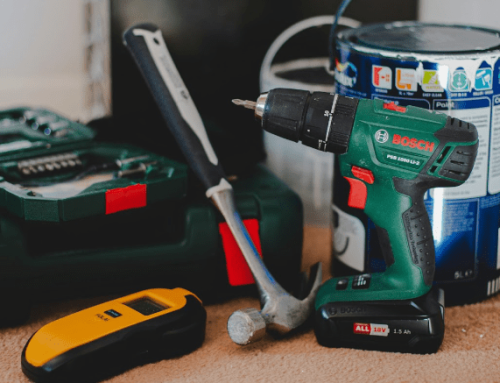With the buy-to-let market on the rise, now could be a great time to invest in buy-to-let property management. But how? This guide will cover the basics of good property management and its importance, as well as how this applies to buy-to-let properties. Keep reading to learn more!
What is Property Management?
Property management is the process of offering services to renters, including showing vacant units, finding new occupants for existing occupied units, collecting rent or security deposits, ensuring that any house rules are being followed. The property manager may also be responsible for minor maintenance work such as appliance repairs. They typically start by reviewing the lease agreement and then arranging a walk through of the unit or property with a potential renter. Property managers are also legally responsible for handling any court cases against the landlord should damages be made to the rental unit.
Many people invest in buy-to-let properties with the expectation of generating a rental income stream. However, it is important to note that these types of investments require a substantial amount of work and effort to successfully run. There are many companies offering property management services for those looking to rent out their investment properties, as proper stewardship can be essential to ensuring that the investment generates a good return.
The Importance of Good Property Management
Poor property management can lead to a decline in occupancy and revenue, potentially having a negative effect on any business that it manages such as buy-to-let properties. For an investor to get the most return on their investment, it’s important for them to understand how important quality management is. Good property management can help a buy-to-let business increase occupancy and revenue by providing a positive experience for tenants and investors alike.
This is why we recommend outsourcing your property management. Professional property managers are trained to deal with the daily hurdles that often come up when managing a property, while some landlords may not have enough time to manage their rental properties. This can lead to potentially costly consequences, such as late rent payments or even lawsuits against the landlord for damages made by tenants that go unpaid.
Why Buy-to-Let Property Management?
Buy-to-let property management is an excellent way to get into the property management industry. Managing a buy-to-let property can be a valuable experience because it provides you with real-world knowledge and insight about the business of property management that’s not taught in any classroom. It also demonstrates your ability as a manager and leader by showing how you handle challenges and issues effectively.
There are some similarities between managing buy-to-let and residential property management. For example, you’ll still need to advertise vacancies, screen applicants, prepare leases and rental agreements, and collect rent from your tenants. However, there are also some important differences. For one thing, you will have to handle more of the repairs and maintenance on a buy-to-let property because it is likely that your tenants don’t have the same level of investment in their homes that a typical homeowner does. Ultimately, you’ll also need to handle the eviction process if a tenant fails to pay rent or violates the terms of their lease.
Guide to Good Buy to-Let Property Management
Prioritise Customer Relationships
Now let’s explore what makes good property management, starting with the importance of having a focus on great customer service. For any business, creating strong relationships with customers is essential to creating a positive experience for them and having them return again in the future.
Whether you’re just looking for a place to rent or if you’re looking for a nice place to invest, good property management can help make the entire customer experience better. This could be by making sure the house is clean and ready to move in, being responsive to maintenance requests from tenants, or welcoming tenants by offering amenities such as a quick snack or even free coffee for those early mornings!
Use Great Property Management Software
Customer relationship management (CRM) systems are software programmes that help you manage your organisation’s interactions with customers, helping you identify when there is a need for change in the business. CRM software programmes are popular among small-to-medium-sized businesses in many industries.
CRM for property managers helps to integrate the different parts of their business together in one place. This makes it much easier to see how certain customers are interacting with the business at every stage of the process – from initial contact all the way through to property inspection and further communication about the maintenance of the property.
There are many pieces of software available that can help you offer more effective property management services. We recommend utilising our expert advice to find the right one for your business.
Related Reading: How to Find the Best Property Management Software
Source Good Tenants
Poor quality tenants could lead to arrears, run-down properties, and potentially high legal fees. Ideally, the tenant will cause no headaches for you and the landlord by paying rent on time and maintaining the property to a high standard. Great property managers will use their expertise to find the best possible tenant for their clients when processing applications.
Build Your Property Management Skills
Building your key property management skills is vital if you want to provide effective property management. These skills include:
- Strong, Clear Communication is important in property management on a daily basis, as a property manager will need to be in touch with property owners, landlords, residents, contractors, and other members of their block management team.
- Exceptional Organisation is vital for a property manager, whether it’s answering resident queries, managing repair requests, completing administrative tasks or organising contractors,
- Flexibility and Patience can go far when managing situations like residents who have a problem with payments, stakeholder expectations, maintenance issues or property owner requests.
- Tech-Savviness is another important skill for buy-to-let property managers, as a manager must be able to keep up with an industry that is swiftly adopting more and more digital practices.
- Basic Maintenance Knowledge is important to have, as you will be responsible for maintaining any property you manage.
- Basic Legislative Knowledge can be a great skill to have in your toolbox in the property management industry, as you will be the first point of contact in a problem. This basic knowledge should also include housing, health and safety legislation and knowledge of property development contracts.
Related Reading: 6 Essential Parts of a Property Management Contract
Looking For a Residential Property Manager?
At Scanlans, we are committed to offering our clients an impressive set of skills and in-depth knowledge of the property management industry. Our block managers are members of the Royal Institution of Chartered Surveyors (RICS) and the Association of Residential Managing Agents (ARMA) so you know that our services are of the highest industry standards.
Find out more about our block management services or learn more about property management over on our expert blog today!










Leave A Comment
You must be logged in to post a comment.